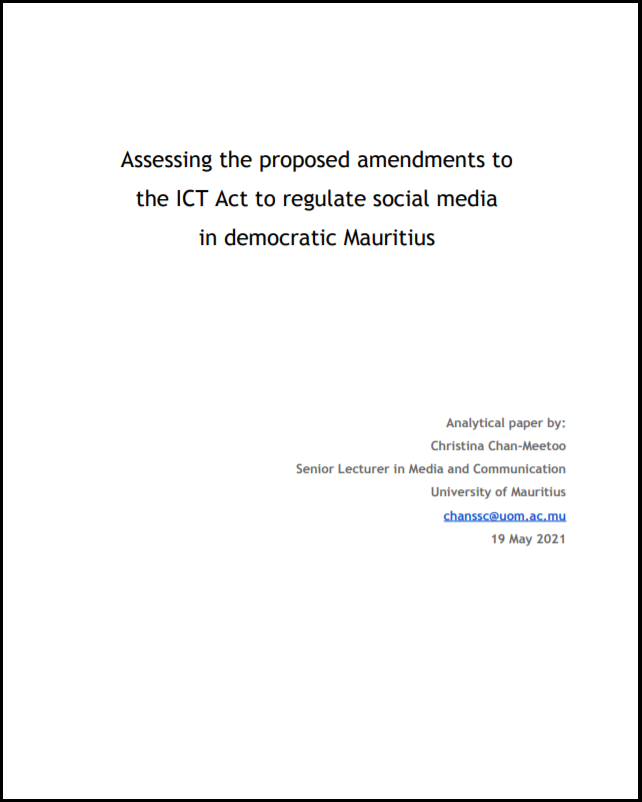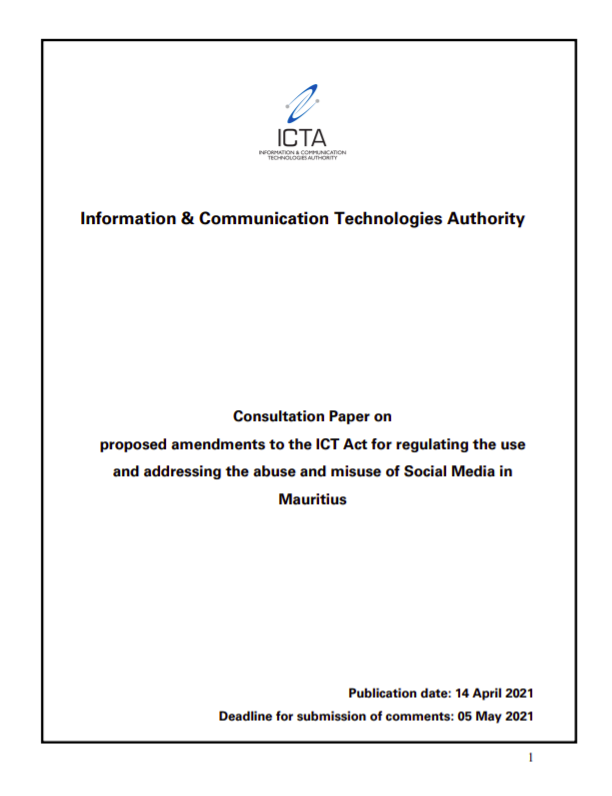On 27 May 2021, Supreme Court judges D. Chan Kan Cheong and K.D. Gunesh-Balaghee delivered their judgement in the case of SEEGUM J v THE STATE OF MAURITIUS 2021 SCJ 162.
Seegum had been prosecuted before the Intermediate Court on 5 counts for the offence of “using an information and communication service for the purpose of causing annoyance”, in breach of sections 46(h)(ii) and 47 of the ACT Act. Two counts were dismissed and the trial had proceeded on three counts all related to “wilfully and unlawfully using an information and communication service for the purpose of causing annoyance to another person” on a Facebook forum under Section 46(h)(ii) of the ICTA, which read as follows at the time of the alledged offence:
“46. Offences Any person who -(…)
(h) uses an information and communication service, including telecommunication service, –
(ii) for the purpose of causing annoyance, inconvenience or needless anxiety to any person;
(…)
shall commit an offence.”
Seegum had been found guilty by the Intermediate Court and fined to Rs 15,000 for each of the 3 counts (total of Rs 45,000). He appealed against the judgement on several grounds, one of them being that “that section 46(h)(ii) of the ICTA breaches section 10(4) of the Constitution”. That section of the Constitution states that:
(4) No person shall be held to be guilty of a criminal offence on account of any act or omission that did not, at the time it took place, constitute such an offence, and no penalty shall be imposed for any criminal offence that is severer in degree or description than the maximum penalty that might have imposed for that offence at the time when it was committed.
Seegum’s counsel argued that “causing annoyance” suffers from vagueness in the formulation of the ICT Act and causes uncertainty. It does not allow the ordinary citizen to determine which conduct may be considered as causing annoyance and whether a particular conduct will fall within the purview of section 46(h)(ii) of the ICT Act.
In their statement, the two Supreme Court judges upheld this argument, recalling that a number of past cases cases have allowed courts (in Mauritius and elsewhere) to reaffirm the well established principle that criminal laws must be certain and formulated with sufficient precision to enable the citizen to regulate his conduct. They write that: “for a criminal law to pass the test of constitutionality under section 10(4), it must be so worded that it allows the ordinary citizen to determine what constitutes an offence and what acts and omissions will render him liable to prosecution.”

